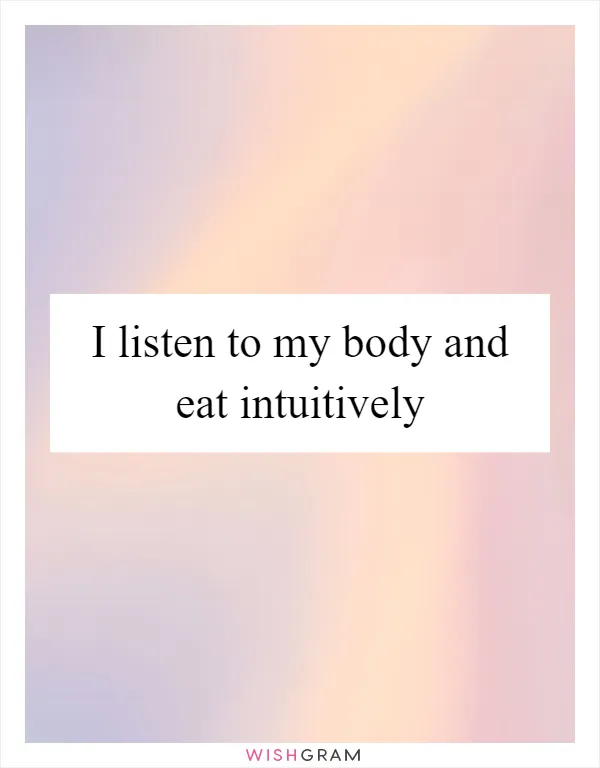I listen to my body and eat intuitively
The affirmation "I listen to my body and eat intuitively" can help you develop a healthier relationship with food. When you listen to your body, you become more aware of its needs and can make better choices about what to eat. Eating intuitively means trusting your body to tell you when you're hungry and when you're full, rather than relying on external cues like the clock or the size of your plate.
Listening to your body means paying attention to how you feel after you eat. Do you feel energized and satisfied, or sluggish and bloated? If you feel the latter, it may be a sign that you're not eating the right foods for your body. By tuning in to these signals, you can make adjustments to your diet that will help you feel better overall.
Eating intuitively also means being mindful of your hunger and fullness cues. When you're hungry, your body sends signals like a growling stomach or a feeling of emptiness. When you're full, you may feel satisfied or even a little bit uncomfortable. By paying attention to these cues, you can avoid overeating and maintain a healthy weight.
One of the keys to eating intuitively is to avoid restrictive diets or strict rules about what you can and can't eat. When you deprive yourself of certain foods, you may end up craving them even more. Instead, focus on nourishing your body with a variety of healthy foods that you enjoy. This can help you develop a positive relationship with food and avoid the guilt and shame that often come with restrictive diets.
Another important aspect of intuitive eating is learning to distinguish between physical hunger and emotional hunger. Emotional hunger is often triggered by stress, boredom, or other emotions, and can lead to overeating or unhealthy food choices. By recognizing these triggers and finding other ways to cope with your emotions, you can avoid using food as a crutch.
